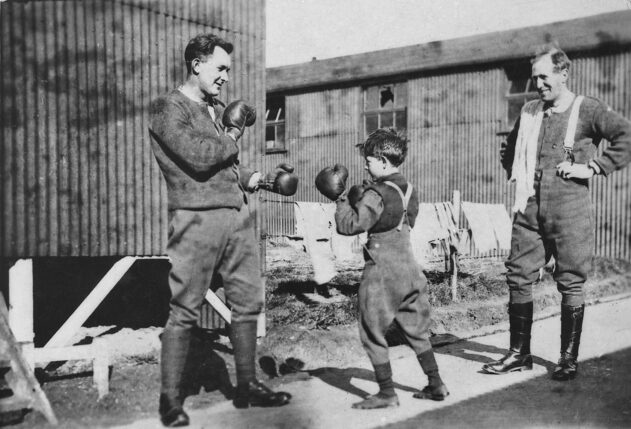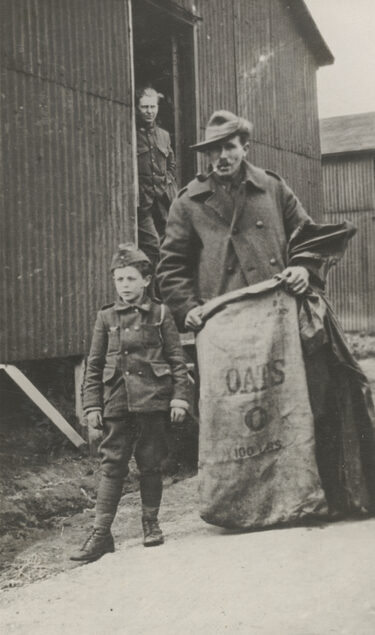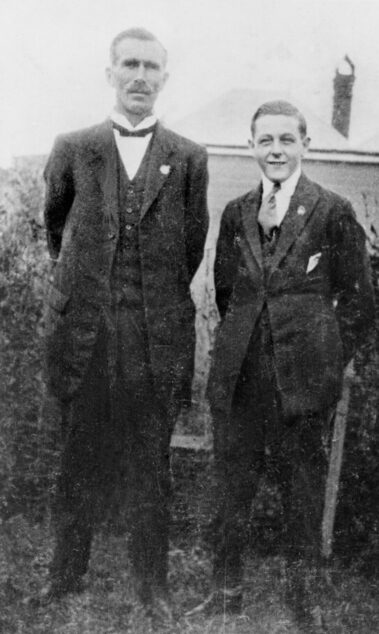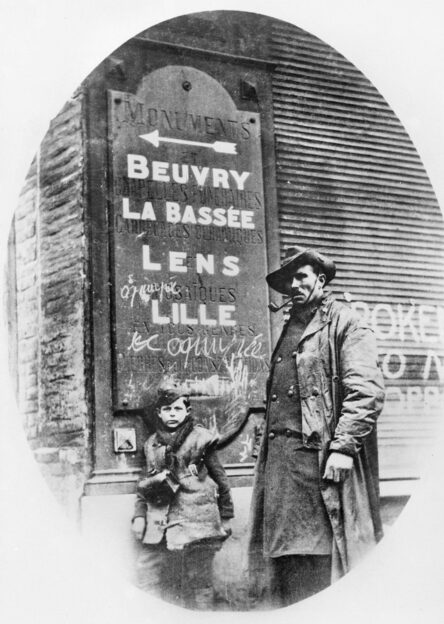For four years Honore Hermene wandered across the battle-scarred landscapes of the Western Front, surviving by scavenging through the wastelands of Europe’s no man’s lands and the kindness of Allied soldiers.
On Christmas Day 1918, motivated by the gurgling in his gut, the young Hermene sniffed out the decadent Christmas lunch of the Australian Flying Corps 4 Squadron, hosted in the airmen’s mess at Bickendorf Air Base in Germany.
Cold, hungry and alone, the boy invited himself to share in the Australians’ feast. Although introducing himself as Honore, according to the Australian War Memorial, the aviators “couldn’t pronounce it, so he became known to them as Henri, and was nicknamed ‘Little Digger’ or ‘Digger.’”

“He is one of those little kids who is a true casualty of war,” Australian War Memorial Historian Dr. Meleah Hampton stated.
His father, most likely a soldier, was killed in the early weeks of the war in 1914, and his mother — and possibly a sister — were killed shortly after that when a German shell struck his house.
“From what we can work out,” Hampton continued, “he had been going from unit to unit, spending a little bit of time with them, getting food and whatever, before moving on to the next one, and that’s what he was doing when he wandered into to the Australian Flying Corps mess on Christmas Day 1918. We don’t know when he was born, and we’re not even sure what town he really came from, or what his surname really was, or anything.”
After his years of rambling, Henri found a home among the Aussies. He was quickly “adopted” by the unit, becoming something of a mascot for the squadron — catching rats, sneaking into planes and enjoying the general camaraderie at the base.

While his age was never determined, Australian doctors estimated that the young “Digger” was roughly nine years old by the war’s end. The men chose his birthday as Christmas Day — one that Henri would use for the rest of his life.
Husband and father Timothy Tovell, an air mechanic with the squadron, became the boy’s unofficial guardian. With the armistice signed on Nov. 11, 1918, the squadron got word that the military drawdown was taking place and that they would soon be sent home.
Tovell wrote to his wife, Gertie, requesting that they open their home to the young boy.
“Tovell determined that he was going to bring the boy home to Australia, and that created quite a stir,” Hampton relayed. “The French and the English authorities didn’t want him to go. They wanted him to go and live in an orphanage, so the Australians decided to smuggle him home with them on a troopship. They carried him on board in a kit bag, and then hid him in a bag of bread, or a bag of oats, until it was too late to turn back.”

He became the beloved son of Timothy and Gertie. However, just as Henri’s life began in tragedy, so too did it end with it.
In May 1928, Henri was killed in a motorcycle accident while traveling in Melbourne.
Despite not being a member of the R.A.A.F., the “Little Digger” was buried with full military honors.
“Tim Tovell was a steady and strong person for Henri to cleave to,” wrote Hampton. “He really needed that, and I think Tovell was happy to be the person that he needed.“
historynet magazines
Our 9 best-selling history titles feature in-depth storytelling and iconic imagery to engage and inform on the people, the wars, and the events that shaped America and the world.






